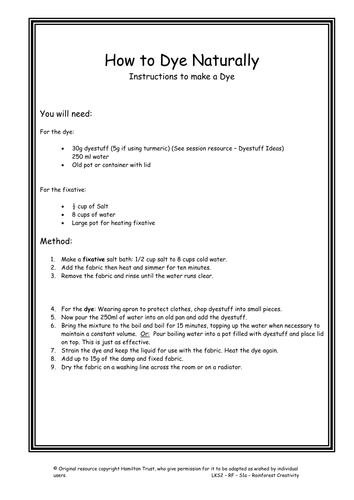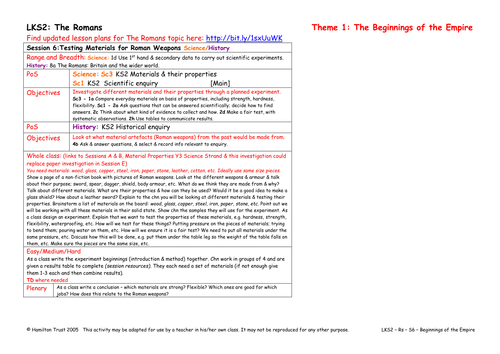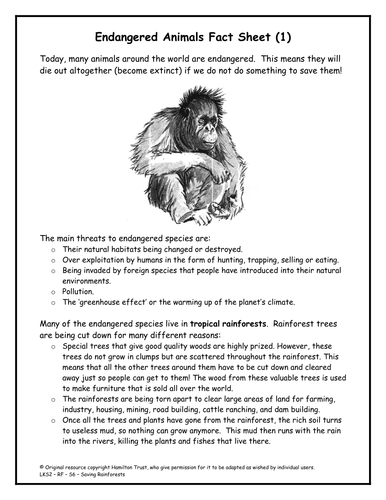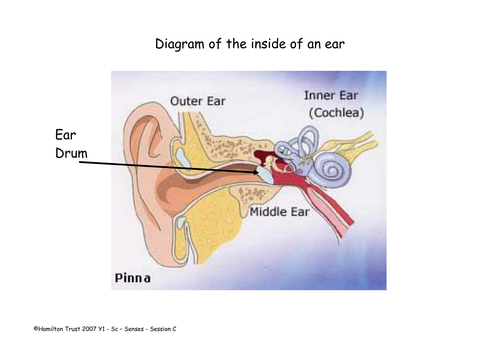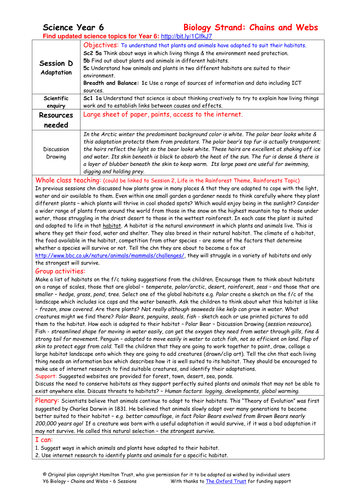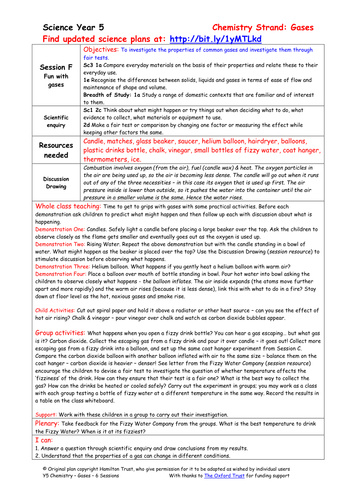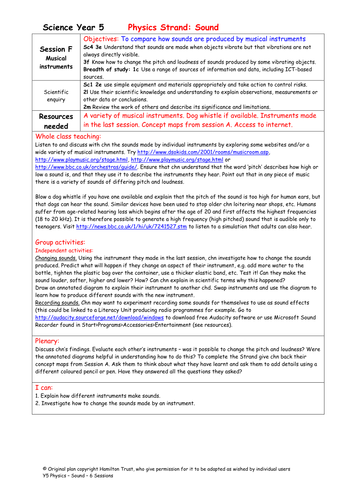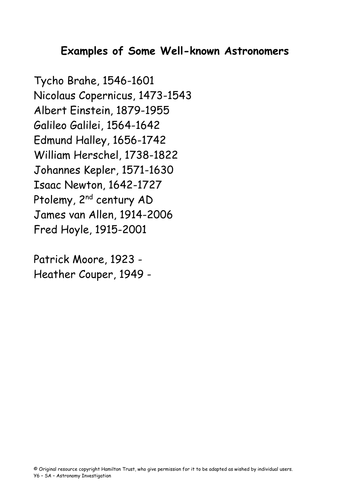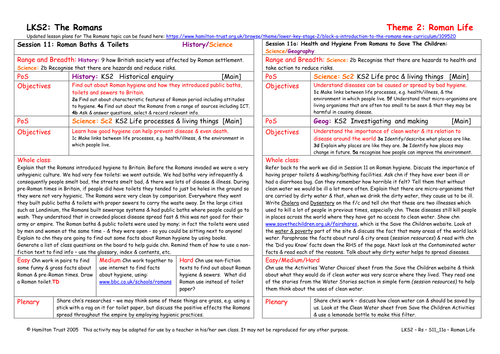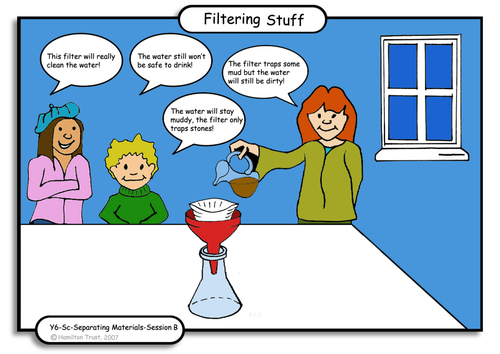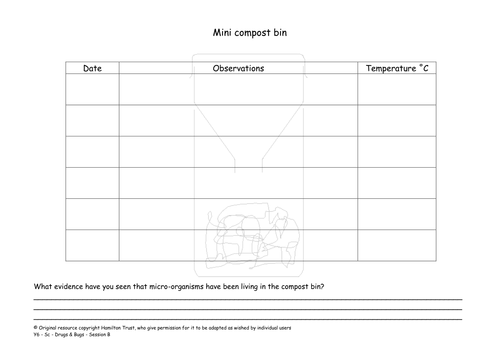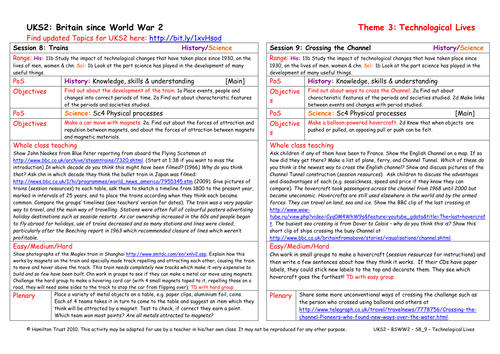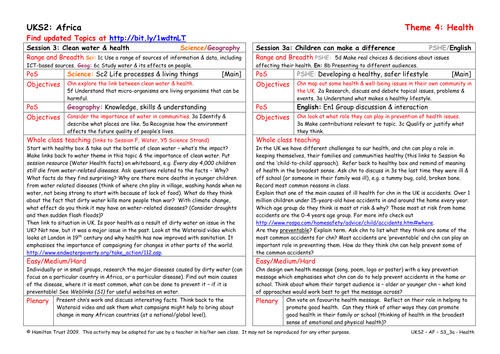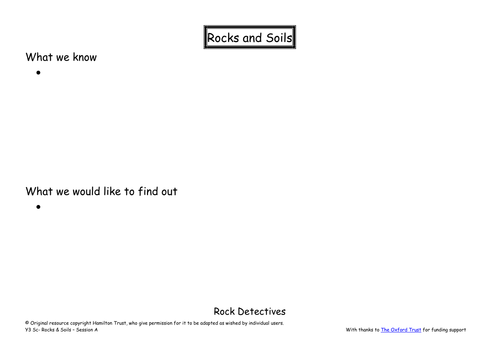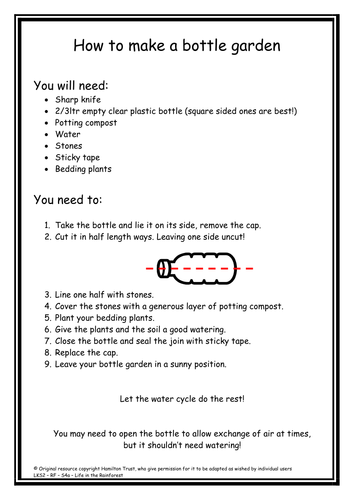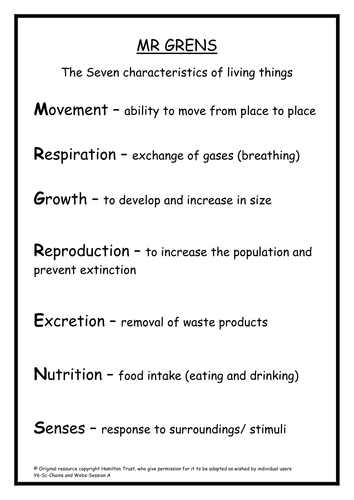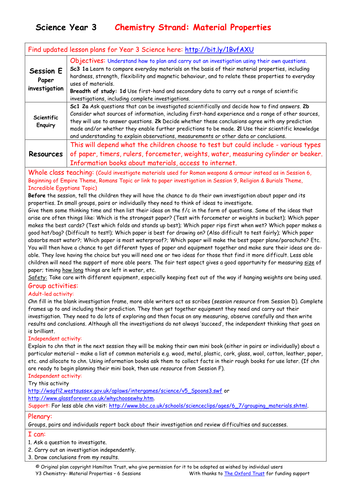
397Uploads
10040k+Views
11644k+Downloads
Primary science

Natural Colours, Natural Dyes
The book Deep in a Rainforest shows that the rainforest really is as bright as a rainbow. Children get access to a variety of natural materials and prepare them to create natural dyes. They record the process and dye small pieces of fabric.

Testing Materials for Roman Weapons
Children look at Roman weapons and discuss the materials that these would have been made from. They then carry out some experiments to discover which materials are most suitable for which purposes. They devise a series of fair tests and communicate results.
Suitable for years 3 and 4.

Endangered Animals
In this session children find out that it’s not only the Orangu-tans that are endangered. Children select animals or plants from the lists provided and start to find out more about their chosen animal or plant.

Explore hearing
Discuss how sound enters the ears and the information is passed to the brain. Investigate the sounds animals make and why; relate to animal treatment. Activity to help children discriminate sounds in a group. Draw animal pictures and label with the sounds they make.
Suitable for Year 1 pupils.

Adaptation
Did you know that Polar Bears don’t actually have white fur? But what they do have are many other adaptations that make them well suited to the Polar habitat. Children identify how other creatures have adapted to their habitat. Suitable for Y6 pupils.

Fun with gases
Candles burn, water fizzes, paper swirls spin and chalk gets dropped in vinegar in this practical session. Children then answer the call of the Fizzy Water company to find out if their water is fizzier ice cold! Suitable for Y5 pupils.

Musical instruments
Listen to a variety of musical instruments and investigate how they make sounds in more detail. Explain how to change the pitch and loudness of instruments made in session E and then try out each other’s instruments. Discuss what children have learnt during Strand.
Suitable for Y5 pupils.

Stars and Moon
Find out about stars and how they are grouped into constellations, despite being a long way from each other. Make a simple telescope to study the stars and a planisphere to identify them. Study the phases and apparent movement of the moon.
Suitable for Y6 pupils.

Roman Baths & Toilets
In this session children look at how the Romans improved hygiene arrangements across the empire by providing clean water and drains for sewage. Children investigate Roman toilets and baths, and discuss the positive effects of these innovations.
Suitable for years 3 and 4.

Filtering
Things become clearer in this session as children find out that some materials are insoluble creating mixtures when added to water. Children create their own filters to purify water but will it be safe to drink?
Suitable for Y6 pupils.

Green micro-organisms
Micro-organisms can be beneficial and in this session children explore their role in compost production.
Find out why it’s important to compost and what can be composted. Make mini compost heaps, look at food chains and create a compost heap story for younger children.

Trains
Children look at trains from different ages, then try to make a moving vehicle using magnets, then have a competition involving choosing magnetic metal objects.

Animals including Humans - Healthy Animals - Year 2
Hatch eggs and study the life cycle of chickens. Build understanding that exercise makes the heart work harder and that it is an essential part of a healthy lifestyle. Find out about healthy lunch box foods before designing and sharing your own snack.
Includes 6 session plans & resources
01 - Hatching eggs!
02 - Babies!
03- Stranded!
04 - Healthy hearts!
05 - Deep inside my lunch box!
06 - Pack a healthy picnic!
Hamilton’s science scheme provides children with a broad but comprehensive experience of primary science that systematically covers all of the National Curriculum for England objectives. Each year group is split into 6 blocks of 6 sessions, each of which can be completed within a half-term. We present them in a recommended teaching order, but you may adapt this to fit your requirements. Working scientifically, investigations and meaningful outcomes are fully incorporated in each block.

Clean Water and Health
Children research the impact of dirty water on health. They present research to the class and identify the biggest killer diseases. Opportunity here to link back to the water topic, and understanding of a preventable disease.
Suitable for years 5 and 6.

Washing Machines and Spin Driers
Children look at labour saving household inventions, order picture of machines across the decades and then carry out an experiment to find out how spin driers work.

Rock detectives
Revisit vocabulary about properties of materials. Explore ‘what we know’ and ‘what we would like to know’. Go for a walk to identify how materials that come from rocks are used around the school.
Suitable for Y3 pupils.

Magnetic Attraction and Repulsion
Following session 7, children look at which types of material are attracted by magnets and which are not. Using an experimental approach, they also investigate the two magnetic poles on a magnet and what happens when like is placed against like, etc.
Suitable for years 3 and 4.

Water Cycle in Miniature
On Earth we still have the same drops of water that touched the lips of the dinosaurs! In this session children use all that they have learnt in the previous session to create a self contained bottle garden.
Suitable for years 3 and 4.

Plant doctors
The Plant Drs are on call in this session & two very ill patients have arrived! What do they need to recover? Children revise the ideal conditions for plant growth é use them to watch the plants recover using time lapse photography. Suitable for Y6 pupils.

Paper investigation
Children will plan and carry out an investigation about paper in small groups or pairs, testing questions they have thought of themselves. They will select the equipment and have a go at explaining results and drawing conclusions.
Suitable for Y3 pupils.

